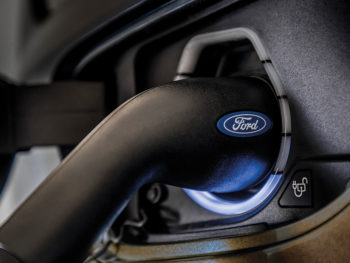Employers need to undertake due diligence on driver charging facilities to ensure electric vehicles – in particular plug-in hybrid vehicles – are being used correctly.

As EVs start to make their way onto fleets in larger numbers, the Association of Fleet Operators (AFP) said operators can’t just hand the keys over and should instead conduct a proper handover process that also includes education on charging.
Chair Paul Hollick said that this was especially important for drivers of plug-in hybrid electric vehicles (PHEVs) who could potentially choose not to charge them and instead continually fuel up at the pump.
He explained: “Our members are rapidly gaining practical experience of operating EVs and one of the things that is becoming clear is that you can’t just have a short chat with a driver about the fact that they want to adopt an EV as their company car and then hand them the keys.
“Fleets need to ensure that drivers have a good understanding of their charging options, have their own charging facilities that are not just a standard socket and, in the case of PHEVs, will always charge the car even when there is option to avoid doing so.
“It’s a case of carrying out some basic due diligence so that you are gaining the maximum operational and environmental benefit from EVs and PHEVs, while minimising some of the potential pitfalls.”
Hollick said that there were a range of norms emerging around the fitting of chargers at home for employees.
“The model that is taking shape seems to be that mostly, drivers are paying for their own charger although, in some cases with larger employers, a third party will provide installation on some kind of preferential terms.
“However, there is a different picture for drivers of electric vans, where most employers are paying for the charger to be installed on the basis that it is a job-need requirement that they are effectively stipulating.
“Around these practices, there are also some other ideas appearing. Sometimes, for example, the fitting of the charger is being added to the monthly lease rate in order to provide a high degree of affordability.”
Hollick added that some fleets were stipulating that EV and PHEV drivers should sign a declaration covering basic points of vehicle operation.
“These employers are asking their drivers to ensure that they keep their vehicle adequately charged, that they have a charger available on their drive and even, where there is only on-street parking, that some form of charger is easily available.
“The conditions for PHEVs are tighter. We’ve all come across a few instances in recent years where drivers have chosen these vehicles to minimise personal taxation and then used them purely as an internal combustion engined car. This makes them extremely expensive to operate and destroys any environmental advantage. Analysis shows that a poorly used PHEV is more expensive to operate than a petrol of diesel equivalent.
“Creating a declaration that electric power will be used as often as possible for PHEVs is a potentially effective solution to this issue and something that we have seen a number of fleets now adopt. It makes the driver aware of their responsibilities and that shows them that their employer takes these matters seriously.”

